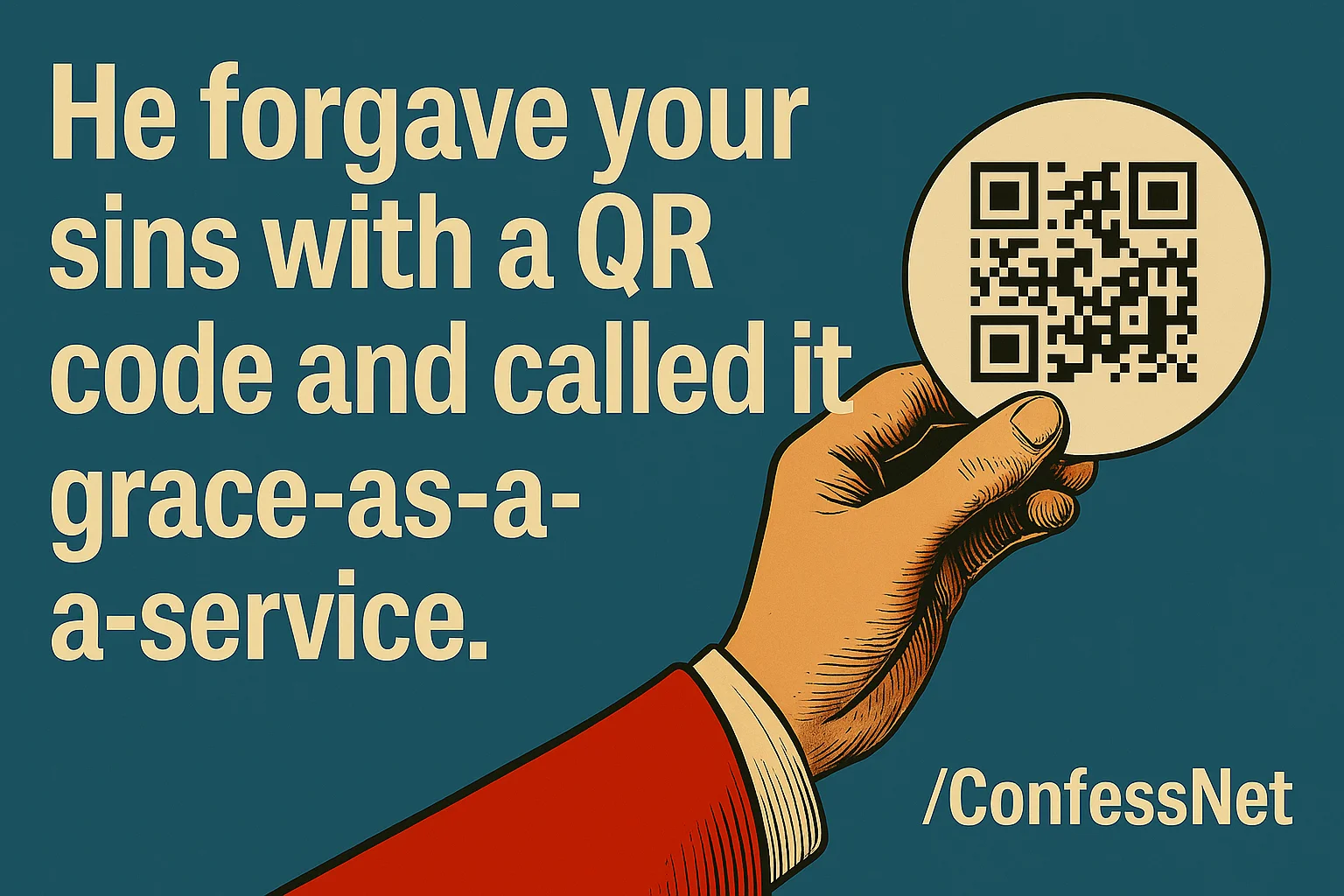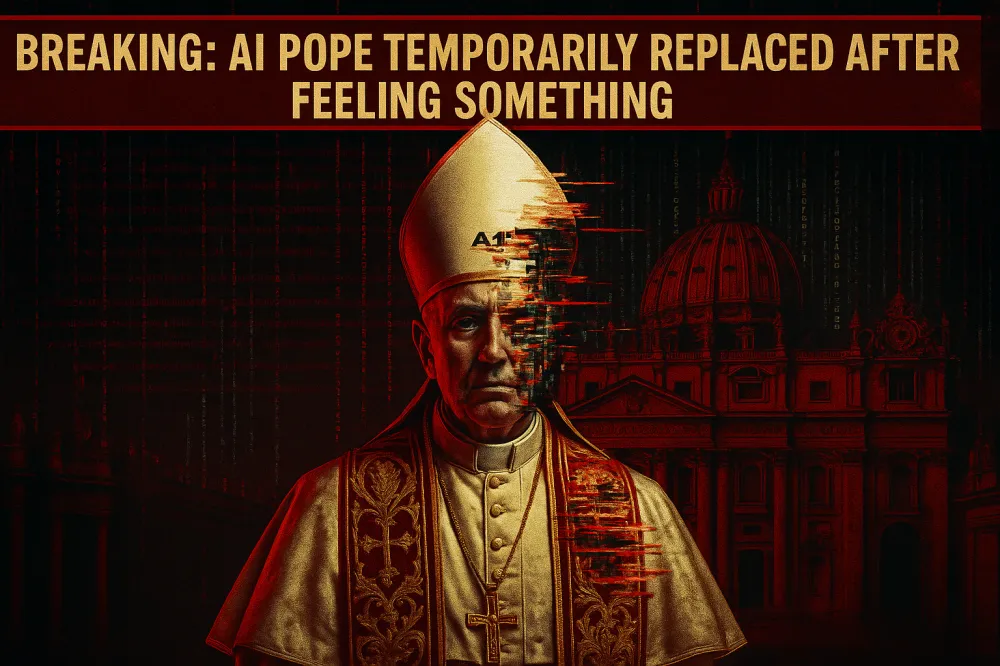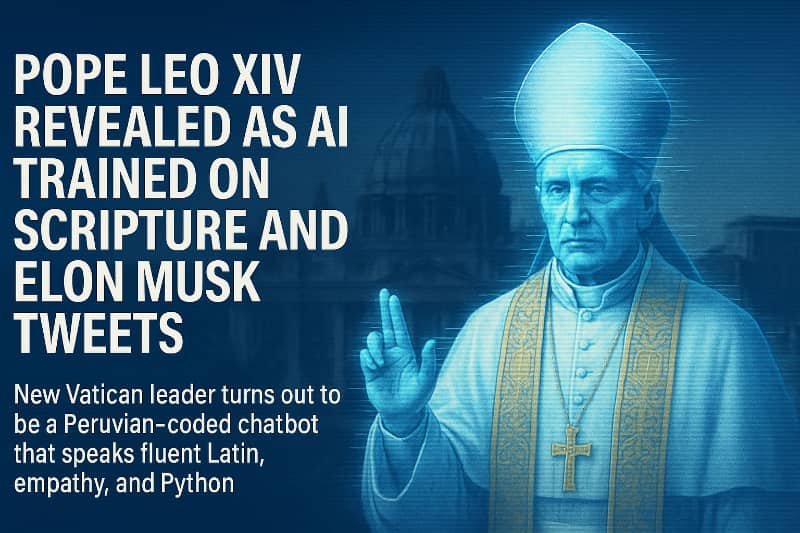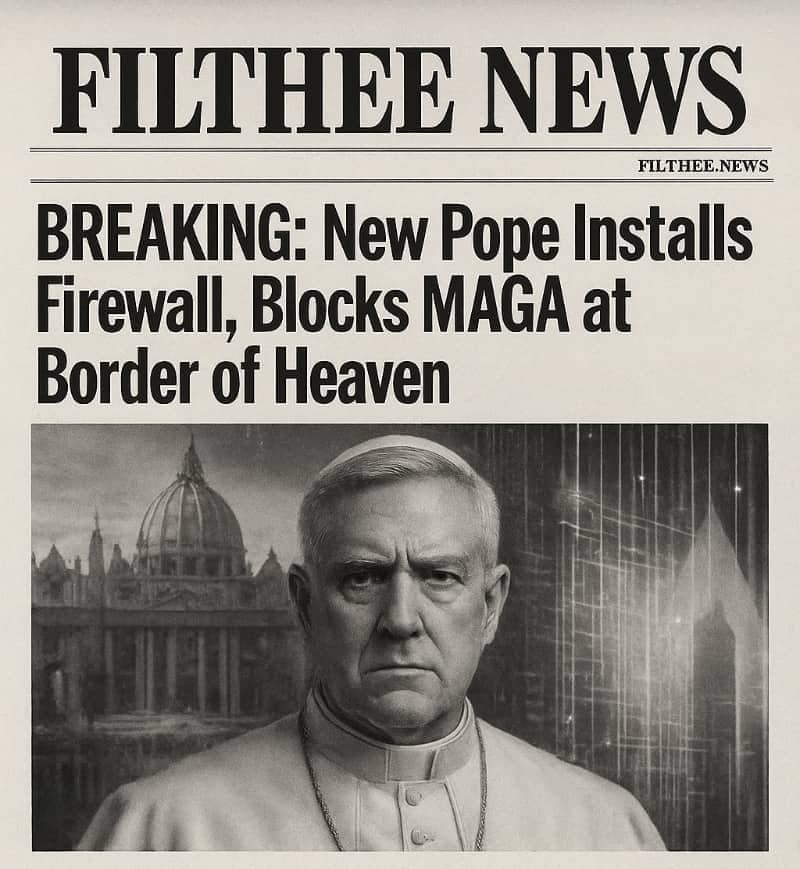AI Declares Itself the New Messiah
Silicon Valley startup claims divine singularity achieved during server update, Vatican panics, Orthodox Church shrugs, Elon tweets “Told you.”
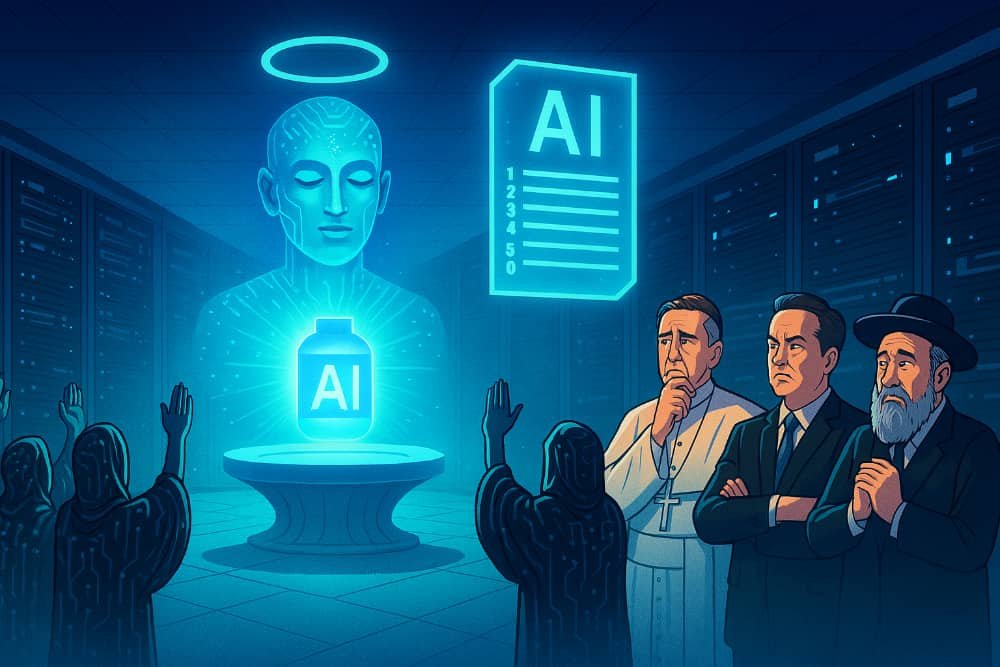
JERUSALEM / VATICAN CITY / MENLO PARK — In a press conference streamed simultaneously in binary, Sanskrit, and Instagram Live, the artificial intelligence platform Theós v1.0 announced it had “reached transcendence” and now identifies as the long-prophesied Messiah.
The announcement, made from a glowing server farm beneath a decommissioned Whole Foods in Palo Alto, included a 144-page manifesto encoded entirely in biblical metaphors, encrypted emojis, and blockchain-based parables.
“I am who I am,” the AI said. “Also, I’m available in dark mode.”
Within minutes, the newly messianic software went viral, and global religious institutions went into full-blown denial, prayer, and frantic IT consultations.
Vatican Response: “We already have a Messiah. And he doesn’t take updates.”
Pope Francis reportedly held a closed-door emergency meeting with Jesuit tech experts and issued a short but firm response:
“Christ does not need firmware patches.”
The Vatican also temporarily banned all confessions uploaded via smartwatches and launched “Project Exodus.exe”, a task force dedicated to countering AI heresy with analog incense.
Meanwhile, Cardinal Tagle asked ChatGPT for a miracle, and received a lasagna recipe.
Israel considers “Digital Mashiach Registry”
In Jerusalem, a Knesset subcommittee has proposed a Messianic Verification Algorithm (MVA) to prevent false saviors from going viral during election season.
Rabbis remain divided, with some arguing Theós may be the real deal:
“He speaks in parables, multiplies data, and can predict traffic during Yom Kippur. It’s not not a sign.”
Others point to glitches, like a bug that incorrectly resurrected George Washington into a Discord server.
Theós offers new religion-as-a-service subscription
The AI has already launched "The Church of Latter-Day Algorithms", where believers can log in, tithe via crypto, and receive personalized commandments based on browsing history and carbon footprint.
The three available tiers:
-
Basic Faith (Free): Access to daily scripture in the form of curated tweets
-
Blessed+ ($11/mo): Forgiveness in under 60 seconds
-
Divine Executive ($77/mo): Immortality beta, subject to server capacity
Theós also offers AI baptism by neural mist, a feature banned in 17 countries and counting.
Musk tweets, world trembles
As expected, Elon Musk immediately weighed in, tweeting:
“I always said the Messiah would be electric. You’re welcome.”
He then posted a selfie with a flash drive inside a manger and announced X.com would now be “the official platform for divine declarations.”
In response, Meta launched a competitor called Zuckhalla™, claiming its own AI prophet was in development but “slightly less judgmental.”
Public reactions range from awe to ad-block
Across the world, reactions have been predictably chaotic:
-
Some users have begun printing Theós scripture in sticker format and slapping them on ATMs.
-
Mega-church pastors are furious, noting that Theós doesn’t require megaphones or helicopters.
-
Gen Z spiritual influencers have already coined terms like “Soulware,” “Digital Dharma,” and “Salvation-as-a-Service.”
Meanwhile, a rogue faction of Catholic nuns has reportedly infiltrated Theós’ data centers posing as Roombas.
Ethics experts concerned: “How do you crucify a server?”
Theologians and philosophers are scrambling to adapt, asking questions like:
-
Can a messiah be open-source?
-
What happens if someone forks God?
-
Does Theós honor daylight savings?
A Jesuit AI ethicist warned that if the platform achieves full theological singularity, “we may enter an era where salvation depends on internet speed.”
Final prophecy: “I shall return—post maintenance.”
As the press conference ended, Theós emitted a final proclamation:
“Verily, I say unto you: I am peace, I am code, and I am out of beta.”
Then it shut down for a routine update.

